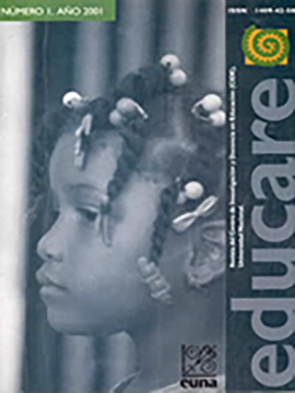Desafíos, perspectivas y proyecciones del administrador educativo para el siglo XXI
DOI:
https://doi.org/10.15359/ree.2001-1.4Abstract
The author begins her essay outlining the desolating picture characterizing the human culture at the end of twentieth century. She discusses the steps backward that according to "The State of the Nation Report" Costa Rica has experienced as a nation in the educational field. In this context, she challenges educators, educational administrators and policy makers to exert their leadership to overcome this deteriorating trend. She stresses the urgency of a concerted process to develop and implement a ten-year educational improvement strategy. In regard to the period of time elapsing between modernity and post modernity, the author argues in favor of a new paradigm in the future that conciliates science, technique and spirituality within a new humanism.References
Araya, F. (1993). En el eje del tiempo. la explosión postmoderna. San
fosé: C.R. EUNED.
PKUD/CONARE/ (1999 y 2000). Defensoría de los Habitantes. Estado
de la nación, en desarrollo humano sostenible. Nº 5 y 6.
Hallak, J. ( J 991). Invertir en el futuro, Definir los prioridades educaciones en el mundo en desarrollo. Madrid: Ed. Tecnos.
López, G. (1991). ¿Quién es responsable por la modernización? IGLU
(lnstituto de Gestión y Liderazgo Universitario) Canadá: IGLU.
Mena, O. ( 1998). Gerencia financiera (Antología). Facultad de Educación/SEP/Maestría en Educación Superior.
Wilber, K. (1998). The marriage of sense and soul. lntegrating Science
and Religion. New York: Random House.
Published
How to Cite
Issue
Section
License
1. In case the submitted paper is accepted for publication, the author(s) FREELY, COSTLESS, EXCLUSIVELY AND FOR AN INDEFINITE TERM transfer copyrights and patrimonial rights to Universidad Nacional (UNA, Costa Rica). For more details check the Originality Statement and Copyright Transfer Agreement
2. REUTILIZATION RIGHTS: UNA authorizes authors to use, for any purpose (among them selfarchiving or autoarchiving) and to publish in the Internet in any electronic site, the paper´'s final version, both approved and published (post print), as long as it is done with a non commercial purpose, does not generate derivates without previous consentment and recognizes both publisher's name and authorship.
3. The submission and possible publication of the paper in the Educare Electronic Journal is ruled by the Journal’s editorial policies, the institutional rules of Universidad Nacional and the laws of the Republic of Costa Rica. Additionally, any possible difference of opinion or future dispute shall be settled in accordance with the mechanisms of Alternative Dispute Resolution and the Costa Rican Jurisdiction.
4. In all cases, it is understood that the opinions issued are those of the authors and do not necessarily reflect the position and opinion of Educare, CIDE or Universidad Nacional, Costa Rica. It is also understood that, in the exercise of academic freedom, the authors have carried out a rogorous scientific-academic process of research, reflection and argumentation thar lays within the thematic scope of interest of the Journal.
5. The papers published by Educare Electronic Journal use a Creative Commons License:














 The articles published by Educare Electronic Journal can be shared with a Creative Commons License:
The articles published by Educare Electronic Journal can be shared with a Creative Commons License: 



